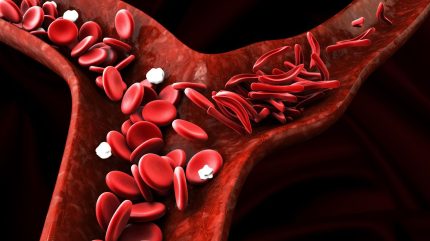NHS to provide Pfizer’s Voxelotor to treat sickle cell disease
03 May 2024
Drug ApprovalClinical ResultAHA

Preview
Source: Pharmaceutical Technology
Sickle cell disease is caused by a genetic mutation that results in red blood cells becoming sickle-shaped, leading to haemolytic anaemia. Credit: Victor Josan / Shutterstock.com.
The UK’s National Health Service (NHS) has announced plans to offer Pfizer‘s Voxelotor (Oxbryta), a new treatment option for sickle cell disease patients.
The latest development comes after the National Institute for Health and Care Excellence (NICE) granted approval for the treatment in patients aged 12 years and above.
The decision will benefit up to 4,000 patients in England with the genetic blood disorder.
Voxelotor, which will be available in tablet form for daily intake, can reduce the frequency of blood transfusions and hospital visits.
It offers a new treatment option for those who have had severe reactions to treatment or prefer not to undergo blood transfusions.
See Also:Psilocybin effective in treating depression

Preview
Source: Pharmaceutical Technology
BioCryst Pharmaceuticals gets grant for inhibitors of the complement system for disease treatment

Preview
Source: Pharmaceutical Technology
The NHS will immediately fund Voxelotor through the Innovative Medicines Fund, ensuring rapid access for patients.
In trials, 51% of participants treated with Voxelotor experienced an increase in haemoglobin levels, reducing their symptoms and enhancing their overall quality of life.
74% of patients taking the drug reported a significant improvement in their well-being.
Sickle cell disease is caused by a genetic mutation that results in red blood cells becoming sickle-shaped, leading to haemolytic anaemia, in which red blood cells are destroyed faster than they can be replaced.
NHS chief executive Amanda Pritchard stated: “The NHS has worked hard to make this life-changing treatment available at a fair price for the taxpayer, as part of our wider drive to improve the quality and experience of care for sickle cell patients, and tackle the stigma and inequalities they have told me they face.
“By improving the quality of life and reducing the need for hospital care, this new treatment option also has the potential to free up doctors, nurses and other clinicians to better support other patients, so we are acting fast to get it to the frontline immediately through our Innovative Medicines Fund.”
For more details,please visit the original website
The content of the article does not represent any opinions of Synapse and its affiliated companies. If there is any copyright infringement or error, please contact us, and we will deal with it within 24 hours.
Organizations
Indications
Targets
-Drugs
Hot reports
Get started for free today!
Accelerate Strategic R&D decision making with Synapse, PatSnap’s AI-powered Connected Innovation Intelligence Platform Built for Life Sciences Professionals.
Start your data trial now!
Synapse data is also accessible to external entities via APIs or data packages. Leverages most recent intelligence information, enabling fullest potential.





